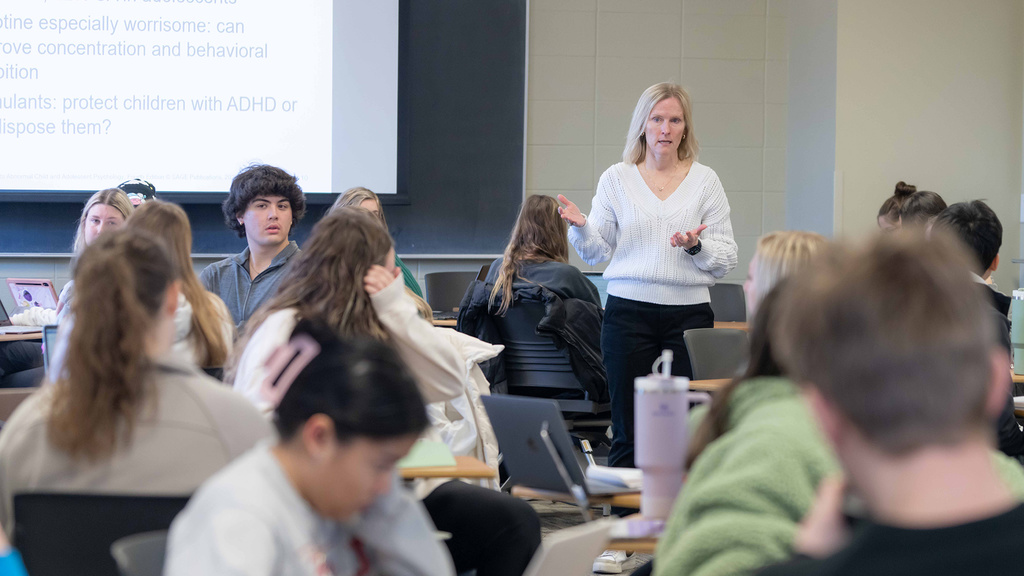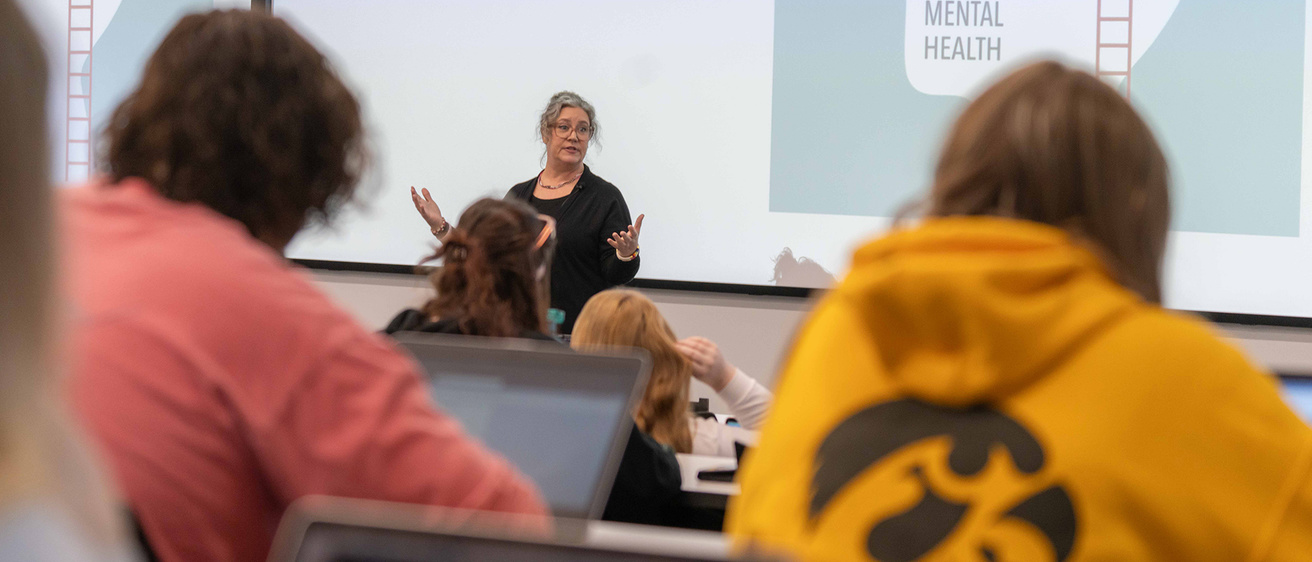The College of Education’s new Bachelor of Arts major in Counseling and Behavioral Health Services (CBHS) advances training and introduces students to the world of counseling and the helping professions.
Program Overview
Counseling and Behavioral Health Services is an innovative, non-licensure major that is intended to leverage College of Education faculty expertise in counseling and human behavior to prepare students for entry level helping positions in nonprofit agencies, government agencies, community centers, clinics, and service navigation programs.
Students will complete a 39-semester-hour curriculum in the major, pairing a significant emphasis in counseling skills with courses in applied counseling, psychology, ethics, career development, and introductions to and theoretical foundations of human services fields.
Fast Facts
- Introduces students to the world of counseling and the helping professions
- Prepares undergraduate students for entry level, non-licensure positions in the behavioral health workforce
- Provides a strong foundation that can be applied toward counseling/mental health related graduate studies
“A distinctive aspect of this program is that it will offer a number of clinical and human service oriented specialties that will add unique value for the students.”
Noel Estrada-Hernández, professor of Rehabilitation Counseling, DEO of the Department of Counselor Education, and co-developer of the CBHS program.
Informal Concentration Areas (ICA)
CBHS provides multiple Informal Concentration Areas (ICAs), which are meant to be fluid over time in order to best reflect trends and issues in the helping professions field.
School Mental Health
The School Mental Health informal concentration area (ICA) equips students with the knowledge and skills needed to support the mental health and well-being of students in educational settings. Courses will provide a comprehensive understanding of the mental health challenges faced by students in school environments. Also, students will learn about the developmental, social, and emotional factors that affect student mental health.
Addictions
The Addictions ICA prepares students to make significant contributions in the field of addiction treatment and prevention. This informal concentration area intends to increase student’s knowledge and advocacy skills needed to understand, prevent, and treat substance use disorders and other addictive behaviors. Students will learn skills that will allow them to provide support addressing the impact of addiction on individuals, families, and communities.
State certification in addictions: State requirements
Corrections
The Corrections informal concentration area (ICA) orients students for careers in the criminal justice system and social programs particularly focusing on the management, rehabilitation, and reintegration of offenders. Courses will provide students with an understanding of the corrections system, including jails, prisons, probation, and parole. Students will learn about the social, psychological, and environmental factors that lead to criminal behavior. Also, will develop awareness of the important concepts of rehabilitation and reintegration.
Faculty
CBHS is comprised of faculty from the College of Education’s Counseling Psychology, School Psychology, and Counseling Education and Supervision programs. To see associated faculty, please: Visit Faculty Listing.
Admissions and Application
Admission Requirements
First-year undergraduate applicants to the Bachelor of Arts major in Counseling and Behavioral Health Services must meet the admission requirements of the College of Education (the same as those required for the College of Liberal Arts and Sciences).
Transfer undergraduate applicants to the Bachelor of Arts major in Counseling and Behavioral Health Services must meet the transfer admission requirements of the College of Education (same as the transfer admission requirements of the College of Liberal Arts and Sciences).
Current University of Iowa undergraduate students may complete the Change of College Application to change or add the Counseling and Behavioral Health Services major. See the steps below:
- Log into MyUI.
- Navigate to the Advising section.
- Select “Change of College Application.”
- Select the college/program you are applying to from the drop-down menu.
- Select the session you would like the change to become effective.
- Provide answers to the supplemental questions.
- Submit the application.
Current undergraduate students who are ineligible to register for courses in their current college or who have been dismissed from anoth
For information about the admission and application process, please contact sheryl-bass@uiowa.edu.
News

Rower glides into new undergraduate counseling major

In the news: DI documents success of new counseling and behavioral health services program

College of Education launches new undergraduate counseling major
Contact Us
Martin Kivlighan, Program Director
319-335-5333
martin-kivlighan@uiowa.edu
Sheryl Bass, Academic Advisor
319-335-1152
sheryl-bass@uiowa.edu
